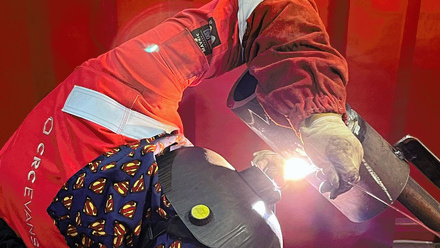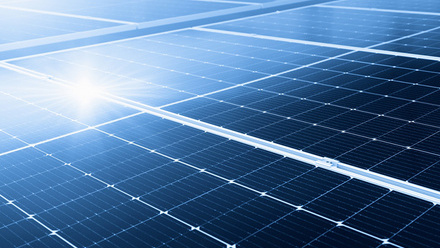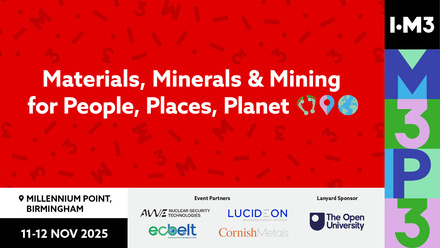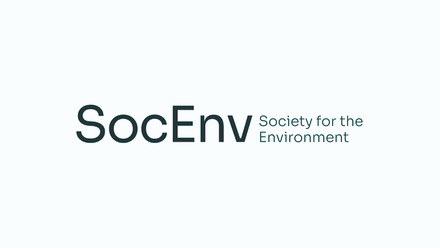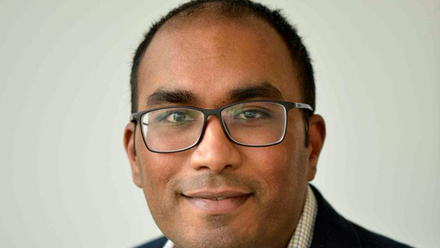Engineering change
As Pride month reflects on the experiences of LGBTQIA+ people, Dr Mark McBride-Wright MBE CEng talks about taking learnings from health and safety to enhance equity, diversity and inclusion within engineering.
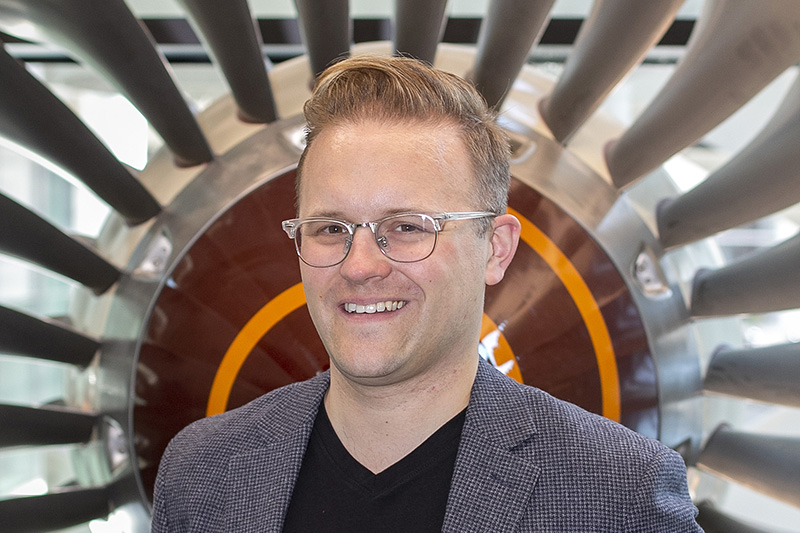
Dr Mark McBride-Wright is a solid example of someone who can ‘walk the talk’ – putting his words and ideas into action.
It took guts to pivot away from the safety-net of his engineering career, start a business dedicated to enacting the changes he wants to see in the industry, and championing equity, diversity and inclusion (EDI) within the very profession he experienced challenges in.
A qualified and chartered chemical engineer, McBride-Wright initially specialised in health and safety, and previously worked in oil and gas, defence, construction and the facilities management industries for the private and public sector.
For the last seven years, however, he has been Founder and CEO of EqualEngineers – a hub to connect engineering and technology employers with employees from diverse backgrounds. The company offers recruitment, runs conferences, training and consultancy services.
McBride-Wright also frequently speaks on his research in masculinity in engineering, inclusive leadership and LGBTQ+ issues. He has trained thousands of clients from organisations such as EDF Energy, McLaren Racing, GKN Aerospace, Leonardo and Eurostar, and is currently working with Supergen Offshore Renewable Energy Hub.
He has also just written his first book. The SAFE Leader distils his learnings and experiences into a digestible format that aims to speak to the individual engineer. SAFE stands for Share, Act, Feel and Empower. Written over three years, it has been a labour of love.
'If EqualEngineers can create an emotional connection with an engineer based on who they are and what they stand for, that is an absolutely incredible thing for us – because then that engineer is part of our network,' he shares.
But there’s also another ambition unfolding within the pages of the book. With his background in health and safety, McBride-Wright is acutely aware that the field is of paramount importance to the high-risk industries in engineering and is now drawing connections between this discipline and EDI issues and wellbeing to engage a wider audience.
EqualEngineers’ research uncovered that an individual was more likely to die from suicide compared to typical hazards in the construction, manufacturing and process industries. The Masculinity in Engineering 2019 survey revealed some stark truths. One in five male employees – 89% of the workforce – had lost a colleague this way.
'As a safety engineer, anything that had a risk or a hazard with such a high potential rate for loss of life, we would design out, we would eradicate, we would minimise. We would change our processes and procedures to reduce the likelihood of that ever happening as far to zero as possible,' McBride-Wright asserts.
'But my brain was still a bit of a spaghetti of how I get out this message of safety being the thing that, in my view, is going to properly transform EDI in engineering – by communicating the link between safety more explicitly and inclusion to get the white, straight, male engineers hooked essentially and engaged in the conversation.'
'It has been incredibly cathartic,' he reflects on the writing experience. 'I feel like I’ve finally got something that has captured all my ideas…so [hopefully] an engineer reads it and thinks ‘that’ll work for our organisation, hadn’t tried doing culture change in that way, let’s give it a try’.'
McBride-Wright is nothing if not ambitious. The book is indeed a precursor to his long-planned Project SHIELD on safety, health, inclusion, equity, learning and development – which envisions working closely with high-risk industry clients with safety at their core and the relevant regulator. Ideally, he would focus on Tier 1 clients that have a large sphere of influence on the wider supply chain for maximum impact.
Compelled to act
After studying Chemical Engineering, McBride-Wright completed a PhD and Masters at Imperial College London, UK. Having enjoyed the final-year project on safety and not wanting to stay in academia, he chose to specialise in health and safety in industry.
Working within consultancies initially, he became an engineering contractor in oil and gas, defence, facilities management and construction, before becoming a champion for diversity based on his own experiences.
A Royal Academy of Engineering event in 2013 on LGBTQ+ and engineering awakened a passion in him to act. 'I remember being in the audience at that event and just feeling that something has to happen from this. This cannot be another event where we publish what’s being said and then we just leave it. It sounds cheesy to say, but I felt a calling. I genuinely felt compelled to do something after that.'
He reflects, 'It was the first time that something was being spoken about related to who I am – gay and in engineering. And those two sides of my identity had never really been brought together.'
Around the same time, McBride-Wright helped set up the Institution of Chemical Engineering’s (IChemE) Diversity and Inclusion Working Group. Its survey to London and Southeast members received about 250 respondents, with only 15 from LGBTQ+ professionals – who were generally white gay men. 'So, there wasn’t much diversity within that diversity…But the written responses were heart-wrenching and some of the people couldn’t be out for whatever reason...I realised that there was a need to create an entity that would focus on this.'
A peer had set up a blog called Being a gay engineer, and after McBride-Wright set up the Twitter handle @LGBTEngineer, they realised they could create something together.
They launched InterEngineering that December. 'That's how I earned what I call my ‘rainbow stripes’ for diversity and engineering…We built a community that became the incubator for LGBTQ+ engineers who wanted to make a change internally.'
McBride-Wright describes how they were victims of their own success. They had a high churn rate of regional leads who would leave the network after their own employer had set up an inter-organisation network that they were involved in. But the cascade of groups and networks at this time emboldened their ambition.
EqualEngineers has now absorbed InterEngineering, running the Engineering Talent Awards plus a conference. They are now looking to replicate the model for other communities, such as for neurodivergent professionals in the sector, disabled engineers, women and for ethnic minorities.
The company hopes the engineers involved will continuously learn from each other and remain in the community.
'I know that the network method does work if done in the right way, which is open so anyone can join and learn what it is about,' McBride-Wright adds.
Leaving the safety-net
Knowing he wanted to start a family in 2017, McBride-Wright decided to step back from full-time chemical engineering and embrace entrepreneurialism.
'I actually found in the early days of EqualEngineers, when it was just me running our events and doing the training and building [the business], that I was back to being a PhD student again. I was working on my own at my laptop and I loved it.'
Having scaled to a staff of seven, the company now has partner programmes for industry and universities, and also works with professional engineering institutions.
'We’ve had influence, and we are in a bit of a unique position being at the heart of some very big players and small players, and we get an oversight of everything.'
Originally, the company focused on each diversity strand of the Equality Act, but McBride-Wright quickly realised this has a shallow impact without systemic change. 'It drives the conversation to a very ‘them and us’ discussion, very polarising.'
EqualEngineers’ primary function is leveraged from its masculinity in engineering research. McBride-Wright feels there are missed opportunities to engage the white male majority in engineering in these discussions.
He describes how LGBTQ+ inclusion conversations can be simplified to Pride marches or rainbow flags on websites, or that an ethnicity network or women’s day celebrations results in calls for a white engineers’ group or a men’s day.
For McBride-Wright and EqualEngineers, inclusion and belonging means creating a culture where people can bring their whole selves to work, to be mentally as well as physically present, and create a nurturing and thriving environment.
'My aha moment for a change in strategy for EqualEngineers was to think, if we were being really good at achieving our ambitions with EDI in engineering, then the white, cisgender, heterosexual, able-bodied, neurotypical male engineer – that represents 84% of the profession –would [also] be able to show up, be open, be vulnerable and challenge toxic masculinity.'
So, McBride-Wright’s book is intended as a learning loop for the individual engineer to discover who they are first. 'What have you been through? What’s your diversity story? What have you got to share with the world? Bring that up to the surface and explore that. And then it takes people through a journey of getting curious about other identities to which they don’t belong.' He hopes readers will feel empowered to be allies and act.
He sees a correlation between external politics and societal issues with how much people now vocalise their adversity, noticing people being more vociferous in recent years and pushing back, as opposed to being silent or treading on eggshells because it is politically correct. It’s exactly those sorts of conversations he would like to challenge.
'Does an onsite engineer care about the 20% return on investment from investing in EDI unless it goes to their paycheck? Probably not.
'Safety is the common language and common thread of all engineers,' he reveals. 'Calling out unsafe acts without fear of retribution, because that’s what we’re told we can do on high hazard sites, is the exact same thing as the psychological-safety paradigm of calling out non-inclusive behaviours, microaggressions and without fear of retribution.
'If we have engineering workplace cultures that are more about looking out for one another, it will be absolutely great…We already do this in physical safety. It’s ingrained into us.'
McBride-Wright has therefore tried to take safety engineering concepts and apply them to culture, diversity and inclusion, and provide frameworks for practitioners who are struggling to make progress, rather than avoiding the awkward conversations around misogyny, homophobia and systemic racism.
Strong sense of self
Since a revelatory moment seven years ago, McBride-Wright has seen change. 'I’ve seen moments of momentum and moments of inertia – swinging like a pendulum going forward.'
He notes that areas like neurodiversity were not even really discussed even two years ago. 'What I enjoy learning about is, how can I continue to be a better ally or support to communities that I’m not part of.'
Does he have any thoughts on his motivation to connect with others? 'I definitely see the power in connecting with people based on who they are and are not on the stereotype
of what they are perceived or could be.'
In the past, McBride-Wright has done a self-learning exercise known as ‘The Dig’, founded by Erin Weed, which delves deep into the core of the individual through discussing past experiences. These are distilled down to a few key words, and then ultimately just one. McBride-Wright’s is justice, which is emblazoned on a mug given to him by his husband.
'When I’m in a social environment or in a circle, if I hear an injustice, I feel compelled to try and solve it, to try and help out where I can. I know that you can’t do that in every situation, and it is not your role, but even simple things, like if someone’s trying to get a job in this sector or get an entry. If I know someone or, if I could help them with a skilled development, I am always thinking how could I connect them?'
He then took this self-discovery into his keynote talks. 'I guess, ultimately, my end goal is to try and create a more inclusive, open, welcome engineering profession, so that we can solve the skills gap. We can get engineers in. Where young girls think they can be engineers and aren’t put off by the composition of the workforce as it is now. But equally, the workforce we have now don’t feel excluded, or that they are no longer welcome.'
It frustrates him that individuals can stall progress and energy is soaked up in conversations and an exclusionary mindset that could be used to focus on problems like climate change and healthcare. 'We need to move on,' he insists.
I put it to McBride-Wright that he has taken an extremely engineering-style approach to EDI – finding a pragmatic solution to a problem he has become aware of. 'I didn’t realise that until that mirror was held up at me by some of my external advisors,' he admits, 'that I am actually taking a very systems-engineering approach, a very process-centred approach to try and solve this cultural problem, where there is more intangible stuff that is not as defined as a core engineering technical problem might be.
'I am more of an engineer than I thought myself,' he says with a laugh.
Target 2050
The success of his business has afforded freedoms to drive even greater changes, he says. 'That’s what really excites me. To no longer have the financial barriers of the past, where we had to ask for sponsorship for this and that.
'To just have an organisation that is able to do what we want to make change – absolutely incredible.'
While there is much talk about net-zero targets for 2050, McBride-Wright has his own goals in sight. 'My son is six, my daughter’s four, they are going to be the workforce in 2040. My mind is on Generation Alpha…so what can I do in the next 20-25 years to make sure that we are in a better place?...I feel like I am just getting started.'


